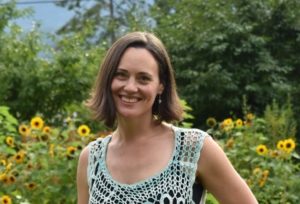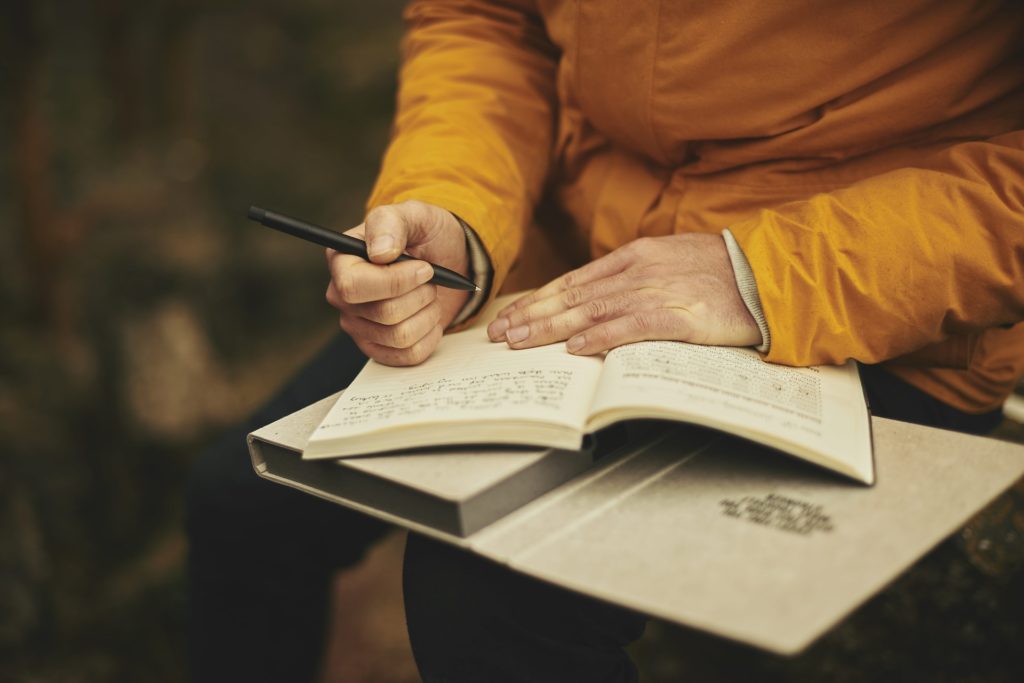by Sarah Spence
‘Mindfulness’ is a buzz word these days. I ponder whether ‘reflection’ will join it, given that leadership teams in corporate organisations are now given journals to write in. Regardless, let’s celebrate that these kind of tools are making it to the mainstream.
The quality of self-observation is key to both yoga, mindfulness and to managing the mind.
I discovered reflection as a yogic tool when I showed up at a yoga ashram in Western Canada. I’d been attending Power Yoga at the gym a few hours away on my working holiday, and quickly discovered that forms of yoga can be vastly different.
Yasodhara Ashram was where I learned how to work with the tools of reflection and writing to help me understand situations in my life: the Kundalini system, Dream work and the Hidden Language of Hatha Yoga. Swami Radha started the ashram (literal translation: spiritual home) in 1963 after she spent time with her guru Swami Sivananda back in the 1950s when Swamis weren’t western, or women. Her take on the yoga teachings she learned in the Himalayas are unique, and are available to anyone regardless of physical ability.
It was here that I found kirtan, the experience of joyful chanting. Kirtan opened my heart through my voice.
I have always loved singing, yet have oscillated between introversion and extroversion in sharing this with others, interlaced with plenty of insecurity. The practice of reflection slowly helped me cultivate my inner witness, meaning that eventually, I found the confidence to share as a kirtan leader.
It’s an ongoing process observing the thoughts that arise: Did people enjoy themselves? Will I have any self-confidence if people don’t tell me they liked it? Am I addicted to good feedback? Will any musicians in the room still respect me if I play a wrong note? Did enough people show up to pay associated costs? Does anyone realise that sometimes it’s easier to teach a physical yoga class than facilitate the energy in a kirtan? Why do so many believe music should be free but they’re willing to pay for a yoga class or a coffee? Why does there seem to be less respect for a part-time musician because I choose to work a main-stream job so I can pay a mortgage and own property? Why do some “spiritual” people seem to have a lot of judgement around how others live their lives? And so it goes on.
I reflect, I watch, I let go, and I keep coming back to the witness.
Trusting in time and flow isn’t always easy. This is where practicing reflection and writing in a group work so well for me. I’m part of a small online group with other Yasodhara-trained teachers that meet fortnightly to practice together. The result of this is that we inspire each other by gaining perspective on situations in life that might be holding us in some form of mental bondage, and have formed incredible bonds. With writing we have a record to reflect back and see how much we have learned, and a group reflects this back too.
One big lesson I have learned over the years of using these reflective tools is this: It’s not helpful to overthink. Trust in the flow. In a reflection class or personal practice, if I end up drawing instead of writing, it’s okay. I don’t need to reflect to fulfil some sort of template or have a reflection that sounds impressive. I can simply enjoy the space: the meditations or mantra practice that are part of the toolset can create a space of a particular form that is a real treat.
Trust in the flow. Wise words to apply to life for those who have a pattern of rushing, like me. More often than not, it is easier said than done. Taking time for space through whichever modality works for you is key. For me, it’s sharing music, sharing reflection and dancing. What’s yours?
About Sarah Spence

Sarah Spence is a kirtan artist and yoga teacher trained at Yasodhara Ashram in Canada and through the Satyananda Yoga Academy, both of which descend from the teachings of Swami Sivananda of Rishikesh. She offers kirtan, online reflection groups and an occasional hatha class or musical accompaniment to asana classes, mostly in the Bay of Plenty and Auckland areas. Sarah also works a day job and currently studies with the First Light Flower Essences of New Zealand, the Medicine Woman Centre of Shamanic and Esoteric Studies and the Dalian Method – all of which use a solid base of reflection. As does the fun practice of 5Rhythms dancing ?
You can find Sarah on Facebook, Instagram or on her website.

Leave a Reply